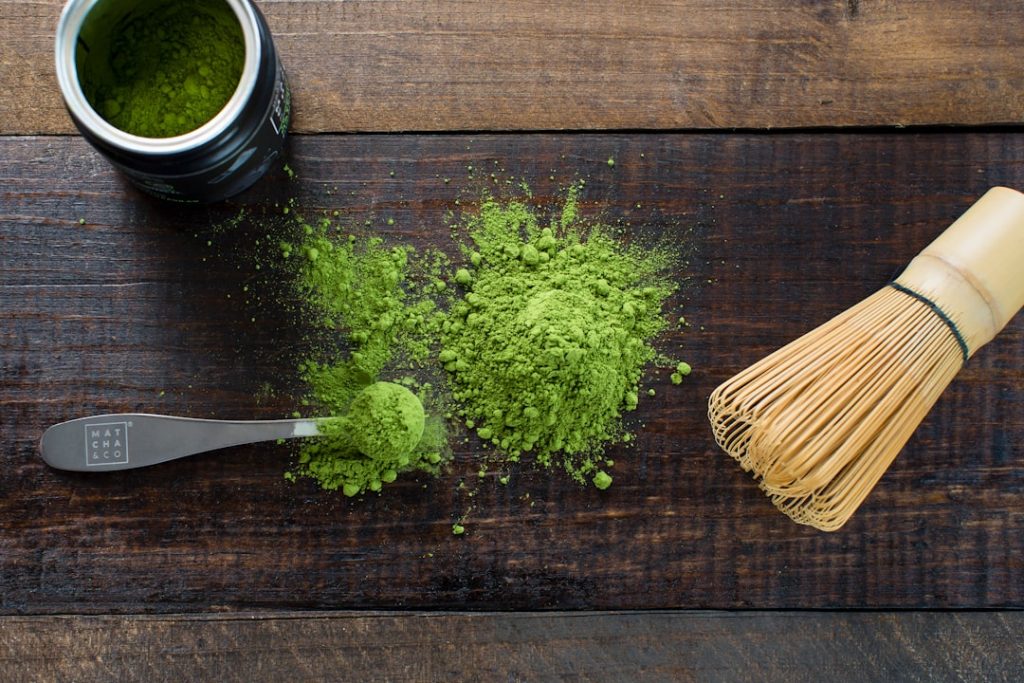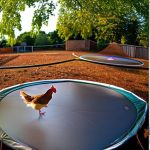Cayenne pepper (Capsicum annuum) is a chili pepper variety commonly used in cooking for its heat and flavor. It also offers potential benefits for chickens, particularly during cold weather. The active compound in cayenne pepper, capsaicin, has thermogenic properties that may help raise chickens’ body temperature, assisting in keeping them warm during colder months.
Additionally, cayenne pepper possesses antibacterial and antifungal properties, which could contribute to maintaining chicken health and preventing illness. Many chicken keepers report that incorporating cayenne pepper into their chickens’ diet has been beneficial for warmth and health during winter. It can be added to feed or sprinkled in the coop.
However, it is important to consider potential risks and proper usage when introducing cayenne pepper to chickens’ diets. This article will examine the mechanisms by which cayenne pepper may help keep chickens warm, discuss potential risks and considerations, provide tips for incorporating cayenne pepper into chickens’ diets, explore alternative methods for keeping chickens warm in cold weather, and share experiences from chicken owners who have used cayenne pepper with their flocks.
Table of Contents
- 1 How Cayenne Pepper Works to Keep Chickens Warm
- 2 Potential Risks and Considerations when Using Cayenne Pepper for Chickens
- 3 Tips for Incorporating Cayenne Pepper into Chickens’ Diet
- 4 Other Ways to Keep Chickens Warm in Cold Weather
- 5 Testimonials and Experiences from Chicken Owners
- 6 The Role of Cayenne Pepper in Keeping Chickens Warm
- 7 FAQs
Key Takeaways
- Cayenne pepper can benefit chickens by improving circulation, boosting their immune system, and keeping them warm in cold weather.
- The capsaicin in cayenne pepper increases blood flow and helps chickens maintain their body temperature in cold weather.
- Potential risks of using cayenne pepper for chickens include overconsumption, irritation to the respiratory system, and potential negative effects on egg production.
- To incorporate cayenne pepper into chickens’ diet, mix it with their feed or sprinkle it in their water in small amounts.
- Other ways to keep chickens warm in cold weather include providing a draft-free coop, using heat lamps, and adding extra bedding.
How Cayenne Pepper Works to Keep Chickens Warm
Thermogenic Properties
Cayenne pepper works to keep chickens warm through its thermogenic properties. When chickens consume cayenne pepper, the capsaicin in the pepper stimulates the circulatory system and increases blood flow throughout the body. This increased blood flow helps raise the chickens’ body temperature, keeping them warm even in cold weather.
Maintaining Core Body Temperature
The warming effects of cayenne pepper can help chickens maintain their core body temperature, which is crucial for their overall health and well-being during the winter months. In addition to its thermogenic properties, cayenne pepper also has antibacterial and antifungal properties that can help keep chickens healthy.
Promoting Overall Wellness
By incorporating cayenne pepper into their diet, chicken owners can help prevent illness and promote overall wellness in their flocks. Whether added to their feed or sprinkled in their coop, cayenne pepper can be an effective and natural way to keep chickens warm and healthy during the colder months.
Potential Risks and Considerations when Using Cayenne Pepper for Chickens

While cayenne pepper can be a valuable tool for keeping chickens warm and healthy, there are some potential risks and considerations to keep in mind when using it with your flock. One potential risk is that some chickens may be sensitive to the heat of cayenne pepper and may experience discomfort or irritation when consuming it. It’s important to start with small amounts of cayenne pepper and monitor your chickens’ reactions closely to ensure they are not experiencing any negative side effects.
Another consideration is that cayenne pepper should be used in moderation, as excessive consumption can lead to digestive upset in chickens. It’s important to carefully measure the amount of cayenne pepper you are adding to your chickens’ diet and avoid overdoing it. Additionally, it’s important to source high-quality cayenne pepper that is free from additives or preservatives, as these can be harmful to chickens.
Tips for Incorporating Cayenne Pepper into Chickens’ Diet
When incorporating cayenne pepper into your chickens’ diet, it’s important to start with small amounts and gradually increase as needed. One way to introduce cayenne pepper is by mixing a small amount into their feed and gradually increasing the amount over time. Another option is to sprinkle a small amount of cayenne pepper in their coop or nesting boxes, where they will naturally consume it as they peck and scratch around.
It’s also important to source high-quality cayenne pepper that is free from additives or preservatives. Look for organic cayenne pepper that is free from pesticides and other harmful chemicals. Additionally, consider consulting with a veterinarian or poultry expert to ensure you are using cayenne pepper safely and effectively with your flock.
Other Ways to Keep Chickens Warm in Cold Weather
In addition to using cayenne pepper, there are several other ways to keep chickens warm in cold weather. One option is to provide additional bedding in their coop, such as straw or wood shavings, to help insulate them from the cold ground. Another option is to use heat lamps or heated waterers to provide additional warmth in their coop.
It’s also important to ensure that their coop is well-ventilated but not drafty, as proper ventilation is crucial for maintaining good air quality and preventing moisture buildup, which can lead to respiratory issues in chickens. Additionally, providing a well-balanced diet with plenty of protein and nutrients can help support chickens’ overall health and ability to stay warm in cold weather.
Testimonials and Experiences from Chicken Owners

Adding Cayenne Pepper to Feed
Many chicken owners have had positive experiences using cayenne pepper with their flocks to keep them warm and healthy during the winter months. One chicken owner, Sarah, shared that she started adding a small amount of cayenne pepper to her chickens’ feed after reading about its warming properties. She noticed that her chickens seemed more active and comfortable even on the coldest days, and she was pleased with the results.
Natural Coop Warming Solution
Another chicken owner, Tom, shared that he sprinkles a small amount of cayenne pepper in his chickens’ coop as a natural way to help keep them warm. He noticed that his chickens seemed more content and active during the winter months, and he was happy to have found a natural solution to help support their well-being.
The Benefits of Cayenne Pepper for Chickens
Both Sarah and Tom’s experiences demonstrate the benefits of using cayenne pepper to keep chickens warm and healthy during the winter months. By adding a small amount of cayenne pepper to their feed or coop, chicken owners can provide a natural and effective way to support their flock’s well-being.
The Role of Cayenne Pepper in Keeping Chickens Warm
In conclusion, cayenne pepper can be a valuable tool for keeping chickens warm and healthy during the colder months. Its thermogenic properties can help raise chickens’ body temperature and keep them comfortable even in cold weather, while its antibacterial and antifungal properties can help support their overall health. When using cayenne pepper with chickens, it’s important to start with small amounts and monitor their reactions closely to ensure they are not experiencing any negative side effects.
Additionally, there are several other ways to keep chickens warm in cold weather, such as providing additional bedding, using heat lamps, and ensuring proper ventilation in their coop. Overall, cayenne pepper can be a natural and effective way to help support chickens’ well-being during the winter months.
If you’re looking for more tips on keeping your chickens warm during the winter, check out this article on converting a shed into a chicken coop. It offers helpful advice on creating a cozy and insulated space for your feathered friends to stay warm during the colder months.
FAQs
What is cayenne pepper?
Cayenne pepper is a type of chili pepper that is commonly used to add spice and heat to dishes. It is often ground into a fine powder and used as a seasoning.
How does cayenne pepper help keep chickens warm?
Cayenne pepper contains a compound called capsaicin, which can help increase blood circulation and raise body temperature. When added to a chicken’s feed, it can help them stay warm in cold weather.
Is it safe to give cayenne pepper to chickens?
In moderation, cayenne pepper is safe for chickens to consume. However, it’s important to not overdo it, as excessive consumption can lead to digestive issues.
How should cayenne pepper be given to chickens?
Cayenne pepper can be added to a chicken’s feed in small amounts, typically around 1/4 to 1/2 teaspoon per pound of feed. It can also be sprinkled in the coop bedding to help create a warming effect.
Are there any alternatives to using cayenne pepper to keep chickens warm?
Other methods to help keep chickens warm include providing adequate shelter, insulation, and heat sources such as heat lamps or heated waterers. Additionally, ensuring that chickens have access to a well-balanced diet and plenty of fresh water can also help them regulate their body temperature.
Meet Walter, the feathered-friend fanatic of Florida! Nestled in the sunshine state, Walter struts through life with his feathered companions, clucking his way to happiness. With a coop that’s fancier than a five-star hotel, he’s the Don Juan of the chicken world. When he’s not teaching his hens to do the cha-cha, you’ll find him in a heated debate with his prized rooster, Sir Clucks-a-Lot. Walter’s poultry passion is no yolk; he’s the sunny-side-up guy you never knew you needed in your flock of friends!







